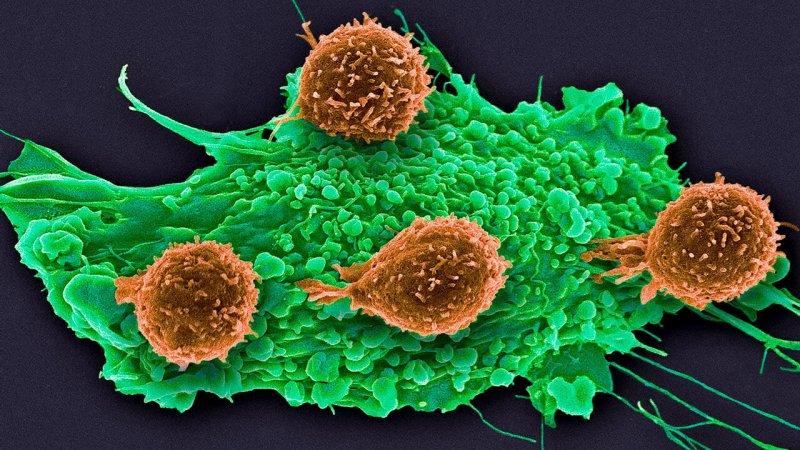The CRISPR Cas-9 gene editing system allows scientists to make precise alterations to DNA, and gained creators Jennifer Doudna and Emmanuelle Charpentier the Nobel Prize for Chemistry this year.
Research from Tel Aviv University now suggests the system can be used to treat cancer in animals, according to Professor Dan Peer… The cancer expert told the Times of Israel that there are ‘no side effects’ from the process, which he described as ‘a more elegant chemotherapy’.
‘We believe that a cancer cell treated in this way will never become active again,’ he said.
‘This technology can extend the life expectancy of cancer patients and we hope, one day, cure the disease,’ Peer said, adding that the technique can destroy a tumour within three treatments.
‘This technology can physically cut the DNA in cancerous cells, and those cells will not survive.’
The research involved hundreds of mice with two of the most aggressive types of cancer – glioblastoma, a brain cancer, and metastatic ovarian cancer.
The mice who received treatment were found to have double the life expectancy of the control group, with a 30% higher survival rate, Science Advances reported.
Peer said that his team plan to develop the treatment for all cancers and that the technique could be ready to use on humans within two years.































